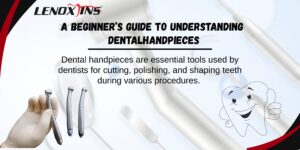Essential Tips for Buying Instruments in Bulk Effectively
- 104
- July 8, 2025
- Dental Surgical

Buying Instruments in Bulk: 5 Common Mistakes to Avoid
In the modern healthcare environment, clinics and hospitals are increasingly turning to bulk purchasing of dental and surgical instruments to reduce costs and streamline inventory management. However, bulk ordering can compromise quality, waste resources, and lead to adverse outcomes if not managed carefully. This article outlines five critical mistakes healthcare professionals must avoid when bulk buying instruments, supported by scientific evidence, best practices, and real-world examples. The discussion covers prioritizing price over quality, insufficient supplier verification, neglecting instrument compatibility, overlooking sterilization requirements, and lacking a robust inventory plan. By addressing these pitfalls, facilities can procure instruments that meet regulatory standards and improve patient outcomes while achieving cost savings through strategic bulk buying.
Introduction – Why Bulk Buying Matters in Healthcare
Bulk buying in healthcare has become vital since the COVID-19 pandemic. With rising material demands and tighter supply chains, clinics and hospitals are using wholesale procurement to secure essential items such as scalpels, dental instruments, and surgical scissors in large quantities. This approach mitigates supply shortages and decreases per-unit costs. However, poorly vetted suppliers or substandard tools can nullify these savings by causing repair expenses, replacements, and disruptions to patient care. Without a clear storage and maintenance strategy, bulk orders risk wastage, contamination, or expiry. For dental professionals and surgeons relying on high-quality, precise instruments, poor bulk buying decisions can have severe consequences. This article explains common mistakes in bulk procurement and offers guidance to ensure quality, efficiency, and regulatory compliance.
Mistake #1 – Choosing Price Over Quality
Opting for low-cost instruments without considering quality is a critical mistake. Cheap instruments may reduce upfront spending but increase the risk of instrument failure during procedures, endangering patients and staff. Dental tools with non-certified components can lead to higher long-term replacement costs and complications.
Why cheap tools cost more in the long run
Lower-priced instruments are typically less durable and precise. Without essential certifications such as ISO or CE, these items may not meet strict quality benchmarks. Studies indicate that premature failures can result in repair costs exceeding initial savings by 30%–50%. High-quality instruments deliver the accuracy, reliability, and safety needed in settings where even minor errors can have major consequences.
Red flags to watch out for in low-cost quotes
Supplier quotes that are significantly lower than industry norms with little explanation may signal quality issues. The absence of detailed manufacturing information, transparent materials data, customer reviews, or post-sale support can be red flags. Instruments offered at extremely low prices may use substandard alloys, affecting performance and safety.
The importance of certified manufacturing (ISO, CE, etc.)
Certifications such as ISO and CE serve as quality assurance signals in healthcare. These marks indicate that instruments have undergone rigorous testing and meet required manufacturing standards for safety and performance. Healthcare facilities should partner only with suppliers who can verify their certifications, ensuring compliance with national and international regulatory standards.
Mistake #2 – Not Verifying the Supplier
Failing to properly research and verify the supplier can compromise the quality and consistency of the instruments delivered. The supplier’s credibility is essential for a reliable supply that supports ongoing clinical operations.
How to research a surgical or dental instrument supplier
Effective verification begins with thorough online research. Review the supplier’s industry history, certifications, compliance documentation, and customer feedback. Independent audits, case studies, and participation in industry forums can provide additional insights. Requesting a product sample or arranging a factory visit offers firsthand evidence of quality control practices.
Questions to ask before placing a bulk order
Before finalizing orders, healthcare professionals should inquire about: – The certifications held by the instruments (e.g., ISO, CE). – Availability of traceability documents. – Procedures for handling defective or substandard products. – Supply chain practices ensuring timely delivery and after-sales support. – Terms regarding warranties and bulk order guarantees.
These questions help determine if the supplier can meet the stringent demands of healthcare environments.
Trust signals: certifications, reviews, Canadian compliance
Strong trust signals—such as robust certifications, positive testimonials, and verified reviews from Canadian health institutions—indicate a supplier’s reliability. Canadian compliance confirms adherence to strict government and industry standards, providing additional assurance that the instruments will be safe, efficient, and dependable.
Mistake #3 – Ignoring Instrument Compatibility & Use Case
Using instruments without considering specific use cases or compatibility requirements can be costly. While a one-size-fits-all approach may seem simple, surgical and dental procedures have unique demands that require specially designed tools for optimal performance.
One-size doesn’t fit all: surgical vs. dental needs
Different medical specialties necessitate customized instruments. For example, dental tools like carbide burs or composite placement instruments require particular ergonomic designs and materials, unlike general surgical instruments. Using non-specific tools may lead to inefficiencies, increased contamination risks, and compromised outcomes.
Understanding the tool's role in your specific procedures
Before placing bulk orders, healthcare providers must assess each instrument’s role. Consider whether the tool is meant for repeated high-precision use or single-use applications where sterility is critical. Instruments for highly sensitive procedures, such as dental implant surgeries or microsurgical operations, require enhanced precision, improved tactile feedback, and proper compatibility with clinical systems.
Consulting with your surgical team or dentist before ordering
Involve end users—surgeons, dentists, and clinical technicians—in the decision-making process. Their practical insights ensure that selected instruments integrate well with daily workflows and minimize disruptions. Collaboration also reveals whether additional accessories or complementary tools are necessary, aligning procurement strategies with clinical needs.
Mistake #4 – Overlooking Sterilization & Reprocessing Needs
Failure to ensure that instruments are compatible with existing sterilization and reprocessing systems can increase infection risks and costs. Instruments must meet the facility’s protocols to avoid reprocessing challenges and maintain sterility.
Disposable vs. reusable: know what you’re buying
Healthcare professionals must decide between disposable and reusable instruments. Disposable items may offer immediate sterility and lower cross-contamination risk but generate waste and higher long-term expenses. Reusable instruments, while requiring strict decontamination protocols, can be more cost-effective over time if maintained properly. Each option has trade-offs in cost, environmental impact, and practical application.
Confirming autoclave and cleaning compatibility
Before ordering, verify that instruments are compatible with your facility’s sterilization systems, such as autoclaves. Some instruments, due to specific alloys or design features, may not withstand high temperatures or chemical disinfectants. Review product specifications for cleaning, reprocessing, and maintenance instructions to ensure longevity and safety over multiple uses.
Long-term cost vs. short-term convenience
Though disposable instruments can ease immediate sterilization concerns, a long-term cost-benefit analysis often favors reusable instruments that comply with sterilization protocols. Clinics and hospitals should weigh acquisition costs against longevity, maintenance, and potential health risks from inadequate sterilization to choose instruments that are both safe and economical.
Mistake #5 – No Clear Inventory or Storage Plan
Bulk purchasing requires a well-organized inventory and storage strategy. Without a clear system, facilities risk overstocking, expiry issues, and improper storage, which can compromise both the functionality and sterility of instruments.
Overstocking can hurt your cash flow
While bulk buying may offer cost savings, overstocking ties up cash and incurs additional storage expenses. Excess inventory can become obsolete or expire, wasting resources. An efficient inventory system ensures that purchased quantities match clinical demand, maintaining healthy cash flow and reducing waste.
Planning for expiry dates and maintenance
Every instrument has a shelf life and requires regular maintenance. It is essential to track expiry dates and schedule maintenance audits to avoid using instruments that may compromise safety. A well-documented system for audits, replacement cycles, and maintenance procedures keeps instruments in optimal condition and minimizes risks during procedures.
Proper storage to avoid rust, contamination, or damage
Correct storage is critical for maintaining instrument integrity. Dental instruments, scalpel blades, and surgical forceps benefit from controlled environments with humidity regulation, proper shelving, and secure containment. Easy access for clinical staff and appropriate storage conditions prevent rust, contamination, or physical damage during emergencies.
How Lenox Instruments Helps You Buy Smart
Lenox Instruments offers guidance, quality assurance, and long-term supplier relationships tailored to dental and surgical bulk buyers. Their expert advice helps clinics select tools that meet stringent quality, performance, and compatibility standards.
Bulk ordering guidance from Canadian experts
With extensive experience in the Canadian healthcare market, Lenox Instruments ensures that instruments meet both practical and regulatory requirements. Their team collaborates with purchasers to analyze bulk orders for cost-effectiveness, covering everything from supplier verification to sterilization protocols to ensure smooth clinical operations.
Quality assurance for surgical and dental tools
Lenox Instruments rigorously tests each tool and confirms necessary certifications like ISO, CE, and Canadian compliance. This quality assurance guarantees that instruments withstand repeated use and sterilization while performing reliably. Post-purchase support, including maintenance tips and troubleshooting, further bolsters clinical confidence in every order.
Long-term supplier relationships, not one-time deals
Rather than one-off transactions, Lenox Instruments focuses on long-term partnerships with clinics and hospitals. Their established supplier network ensures consistent product performance and pricing, streamlines procurement, and offers detailed after-sales support. These enduring relationships help negotiate favorable terms and allow for seamless adjustments in future orders.
Conclusion – Avoid These Pitfalls and Buy with Confidence
By avoiding mistakes such as prioritizing price over quality, neglecting supplier verification, overlooking compatibility and sterilization requirements, and lacking a proper inventory plan, healthcare providers can secure instruments that meet regulatory standards and improve patient outcomes. Lenox Instruments offers expert bulk ordering guidance, making each purchase a strategic investment in quality and safety. The right tools not only save money but also enhance clinical efficiency and reliability over the long term. Contact Lenox Instruments today for smart procurement solutions that guarantee superior results in healthcare.
Frequently Asked Questions
Q: Why is quality more important than price when buying instruments in bulk? A: Quality instruments reduce the risk of failure and costly repairs or replacements. Certified tools (ISO, CE) ensure patient safety and adherence to regulatory standards, ultimately saving money and preventing complications.
Q: How can I verify that a supplier for bulk instruments is reputable? A: Check for certifications such as ISO and CE, review customer feedback, request traceability documents, and ask detailed questions about quality control practices and after-sales support.
Q: What factors should be considered when selecting instruments for specific procedures? A: Consider whether instruments are designed for the intended procedure. Dental and surgical tools have unique compatibility and ergonomic requirements. Consulting with clinical teams and evaluating design, precision, and durability is essential.
Q: How do sterilization and reprocessing impact the choice between disposable and reusable instruments? A: Reusable instruments must be compatible with your sterilization systems, while disposable instruments offer immediate sterility without reprocessing. The decision depends on long-term cost analysis, environmental impact, and practical application within your facility.
Q: What strategies can help with inventory management when buying instruments in bulk? A: Implement a robust inventory system that tracks expiry dates, schedules maintenance, and monitors stock levels. Proper storage conditions with controlled humidity and organized shelving help maintain instrument functionality.
Q: How does Lenox Instruments support healthcare providers in bulk procurement? A: Lenox Instruments offers expert guidance on supplier verification, quality assurance, and compatibility assessments. Their long-term supplier relationships and detailed bulk ordering strategies ensure reliable, certified instruments that enhance patient outcomes while optimizing costs.
Q: What are the benefits of using instruments with proper certifications like ISO and CE? A: Instruments with ISO and CE certifications have undergone rigorous testing. This assures healthcare professionals of their reliability, safety, and performance, ultimately reducing procedural risks and contributing to overall patient well-being.




